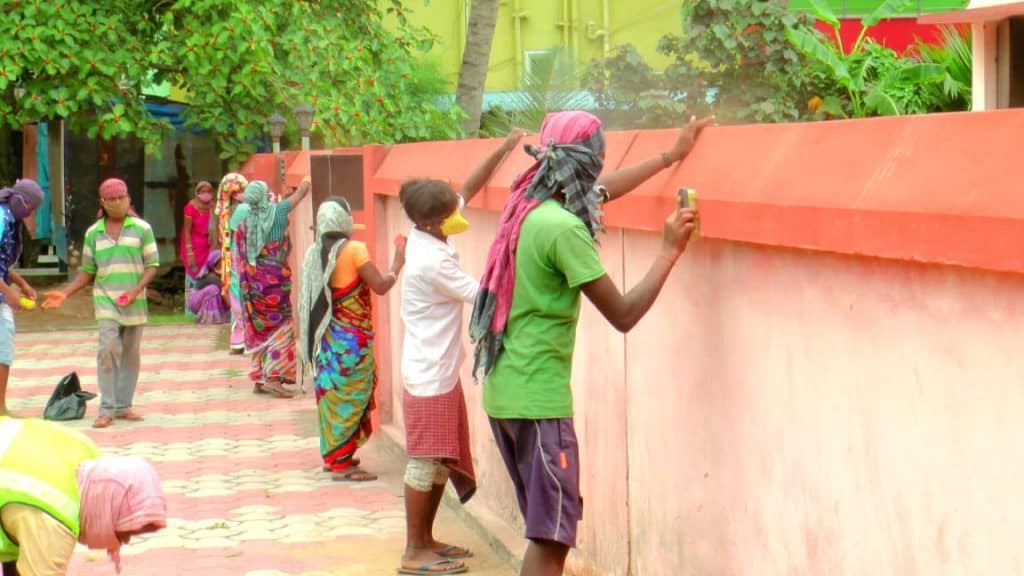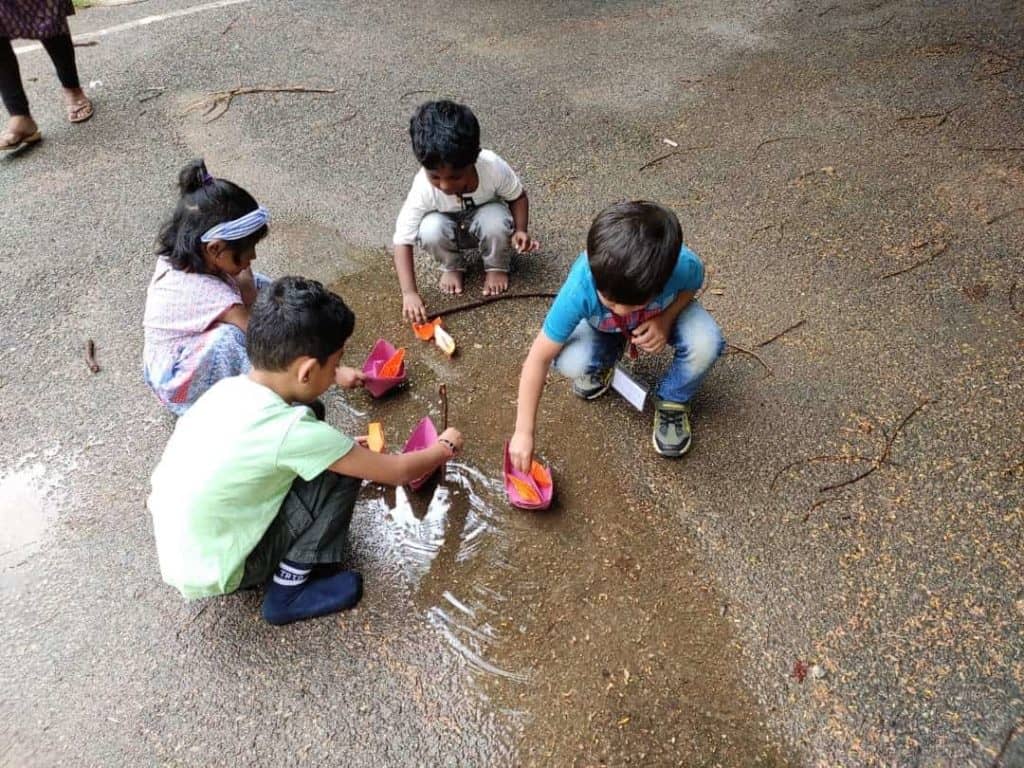“Those who don’t learn from history are condemned to repeat them”. So wrote Winston Churchill. A chillingly apt truth those in charge of urban governance in India need to learn today. Many lessons of 2020 — public health and livelihoods to name two — went unlearnt. The same lessons and some new ones came to the fore in 2021, especially the images of people running helter-skelter and paying exorbitant prices for that precious cylinder of life-giving oxygen as wave two of COVID ran amok.
For me, the sight of students slowly trooping back to schools and colleges was among the happiest. But then came the depressing findings through many studies that students, especially the younger ones in their foundational learning years, had forgotten everything they had learned before. And that the country now had one more divide to its already many existing socio-cultural-economic ones. The digital divide.
Over the 12 months of the year just passing us by, Citizen Matters covered, in depth, these and many other issues. Our focus was on the major urban centres. As cities craved to go back to the old normal, they had to contend with the COVID-induced new normal.
All around, the demand arose for greater citizen participation in managing their cities. Citizen groups, formal and informal, started chipping in with volunteer work on the ground and ideas for the immediate future. You will find many such stories in our Bangalore, Chennai and Mumbai chapters.
In all aspects of urban governance, there was remarkable unanimity on the need for decentralisation and democratisation of decision making. Unfortunately, the powers that be, at the state and national levels, are not convinced.
But that discussion is for a different time. For now, we give you some our best stories in different categories we wrote in 2021 in our National section. It was not an easy choice, given there were so many good stories covering a wide range of subjects. This is purely a very subjective editor’s choice.
Our request, dear reader, is for you to write back to us with the stories you think should have made this list.
Public Health: Here comes Omicron
The most eloquent, and tragic examples of the complete break down of urban public health systems were in two reports—one, a critical patient dying outside a hospital’s emergency ward as the hospital refused to admit him. Two, the queues of people carrying oxygen cylinders outside oxygen manufacturing units waiting to get their cylinders filled with the life giving gas. For government and private hospitals had run out of oxygen during the virulent COVID second wave.
Perhaps an obscure media report which this writer stumbled upon by chance reflects the plight of a hapless public. An elderly patient in Delhi recovered and discharged from hospital after paying the hospital bill for the oxygen he received, going down on his knees and thanking god for the free oxygen that nature had given him for the past 70 years. And wondering what he would have owed god at current rates.
Then came the confusion over vaccination, and problems of cost and availability. Areas in which, a former union health secretary told Citizen Matters, the government had bungled badly.
Reduced budget allocations for public health over the years had been highlighted by many experts. That the centre’s emphasis on PPP (private-public partnership) in healthcare was disastrously misplaced were evident by its abject failure in states like Uttarakhand.
Yet, even after everything that’s happened, it remains the cornerstone of state policy. And new, capital intensive digitised health card schemes are being touted as the new age solution.
Even as people brace for the third wave—the Omicron. But that’s for 2022.
- “A digitised card cannot solve problems of access and affordability in public health”
- Ill-planned, ill-executed PPP projects behind Uttarakhand’s crumbling health services
- Opinion: How ‘privatisation’ and ‘PPP models’ have left Indians to die
- From ‘social’ to ‘physical’ distancing: Why language matters when we discuss COVID
Livelihoods: An urban work scheme
Unfortunately, already forgotten, are the stories and pictures of lakhs of unemployed migrant workers and their families walking hundreds of miles back to their home villages after the first 2020 lockdown. In 2021, they started trickling back to the cities hoping to get their jobs back. But the jobs had gone for good. And the few that were available came at low wages and exploitative conditions.

Given the desperate times, some economists and development experts sought to start a national debate on the need for an urban jobs scheme for daily wage workers, akin to the one for rural workers.
Few questioned the urgent need for such a scheme. Specific examples of Kerala and Orissa where such schemes had been tested were given. The mechanics of implementing such a scheme were suggested. Sadly, in the end, the debate petered out.
Citizen Matters took an in-depth look at the possibilities of an urban work scheme and how state governments in particular could begin thinking about and implementing such a scheme.
We give below some expert views and other stories we had done on the subject.
- Editorial: Five key steps to jump start a job scheme for urban workers
- Guest column: A councillor-driven urban jobs initiative could save the day
- Urban employment guarantee Part 1: “Desperate times call for desperate measures”
- Urban employment guarantee Part 2: The challenge lies in making it viable
Environment, Climate change — What??
Even the weather is not the same anymore. No city escaped the effects of unusual weather events resulting in flooding and worse in 2021. In fact, even as we pen this, Chennai is in the throes of a renewed episode of intense rainfall, followed by flash floods, that has brought life to a grinding halt.
Unfortunately, no city has climate change factored in adequately, in their master plans for the future. Also, there seems as yet little realisation among planners on the many linkages between sustainable environment, waste and water management and climate change. And though the Central government has come up with a series of schemes like the National Clean Air Quality programme and Swachh Bharat 2.0 and all kinds of rankings for cities, there has been little discernible change on the ground.
Below are some of the stories we have done on these issues:
- Delhi’s toxic air: From emergency measures to sustained action
- Opinion: Five areas Swachh Bharat 2.0 must focus on to overcome our real waste challenges
- Indian cities need a waste inventory. These studies show why and how
- Battling the climate crisis in Tier 2 cities: What can we all do?

Schools: Who is in charge?
Hybrid teaching. Blended learning. The pandemic’s contribution to school education. After 20 months of total closure, as schools across cities cautiously opened their doors, they found that they had no option but to devise totally new online-offline teaching, learning and evaluation systems.
But two other unanticipated issues surfaced. One, the adverse effects of online teaching on students’ mental health. And the stark digital divide among private and government school students. For poor students, whose parents had lost all income and jobs, lack of access to smartphones and the internet became a critical issue for the state to address.
The most seriously affected in this digital divide were the class 1-5 students, whose foundational learning got completely lost in the process. What effect this will have on their learning and earning capacity in the years ahead is anybody’s guess.
At the national level, Citizen Matters tried to look at the larger policy issues that the education ministry was grappling with. Our selection of articles combines on the ground reporting with expert opinions.
- Preschool closures in Delhi: Where will our toddlers learn when the pandemic is over?
- School closure: The mountain of myths standing between our kids and education
- Opinion: The new CBSE Class 12 evaluation system is at best a make-shift arrangement
Governance: All about money
Attention inevitably got focussed on Delhi. But the need for an urgent review and revamp of urban governance systems is common to all cities. Sustainable development was the goal, on paper at least.
But the powers that be, at the centre and states, are not convinced. Instead opting for capital intensive schemes like Smart Cities Mission which has come under severe criticism in every city where it is being implemented.
It is a long road ahead for Indian cities, agree all urban experts. But Delhi’s master plan for 2041 is an example of everything that is wrong with urban planning, according to experts in these articles that we have selected.
- How good governance can transform a city: The tale of Surat
- Opinion: Nothing smart about Centre’s Smart Cities Mission
- Sustainable Development: Strategies for the long road ahead in Indian cities
- As Delhi works on Master Plan 2041, time to rethink city plans from the bottom up